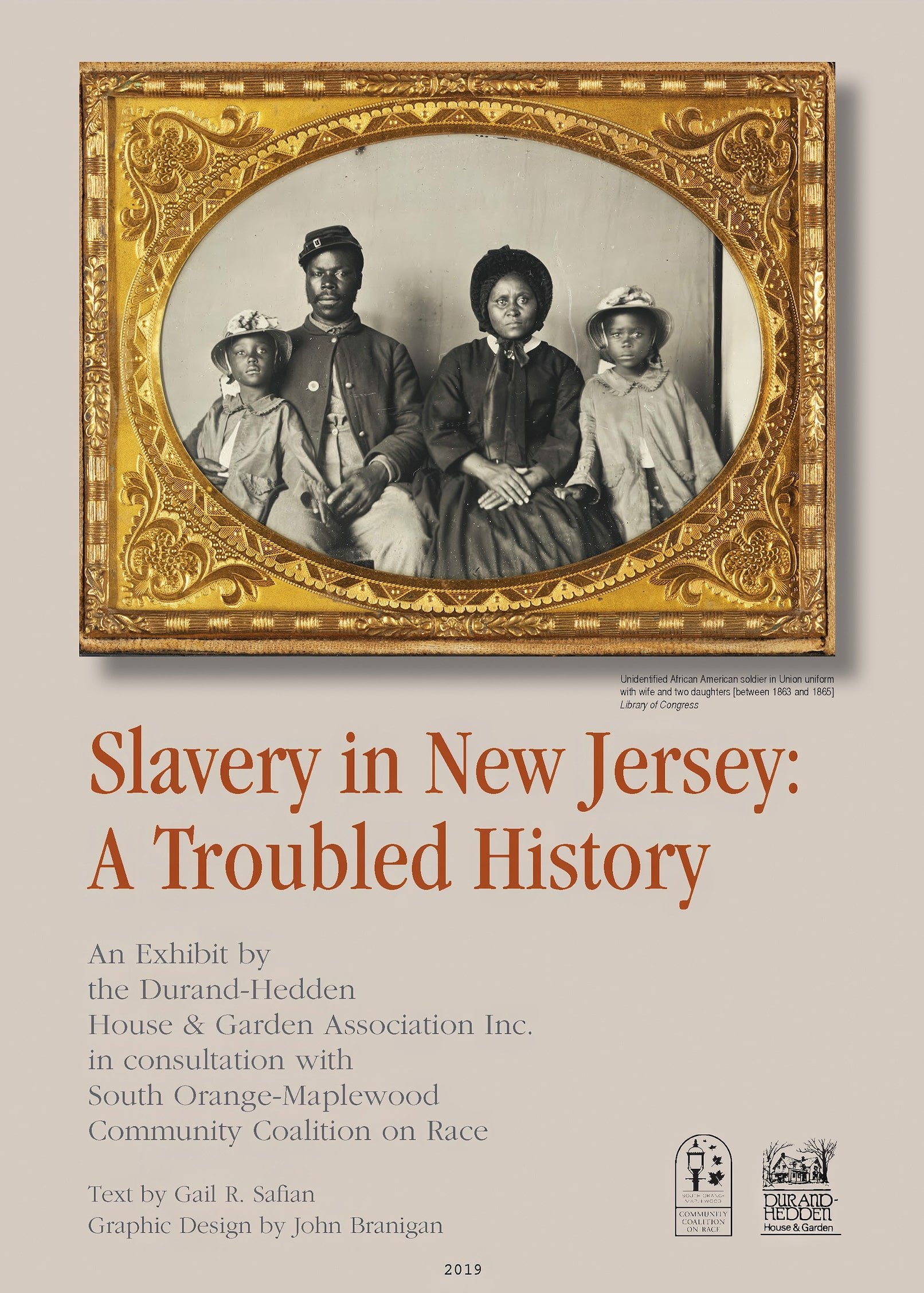JERSEY BOOKSHELF: ‘Slavery In New Jersey: A Troubled History,’ by Gail R. Safian
Slavery In New Jersey: A Troubled History (2019)
by Gail R Safian
The tremendous accomplishments of African-Americans are made much more remarkable by the colossal obstacles they faced in America. Vermont was the first state to ban slavery. California, Oregon, Washington and Hawaii never permitted slavery. Starting in 1625, New Jersey had a healthy slave trade. East Jersey and West Jersey were unified in 1704, and a “Slave Code” was established prohibiting slaves and free Blacks from owning property. The New Jersey legislature freed any slaves imported after 1776. But kept existing slaves. The British promised to free any slave who fought for them so Blacks wound up fighting on both sides of the Revolutionary War. Bergen County was the largest slaveholding county in the state. In 1800, there were still over 3,000 slaves there. Many states outlawed slavery after the Revolutionary War. New Jersey did not. It took until 1804, yet there were still slaves in New Jersey until 1865. In fact, New Jersey was the last Northern state to abolish slavery.
The Underground Railroad had several routes criss-crossing the state in an effort to help slaves escape to New York by crossing the Hudson River. New Brunswick was a main hub. So was Camden. It took until 2008 for the New Jersey State Legislature to pass an official resolution of apology, only the third state to do so. It reads, in part, “The Legislature of the State of New Jersey expresses its profound regret for the State's role in slavery and apologizes for the wrongs inflicted by slavery and its after-effects in the United States of America; expresses its deepest sympathies and solemn regrets to those who were enslaved and the descendants of those slaves, who were deprived of life, human dignity, and the constitutional protections accorded all citizens of the United States; and we encourage all citizens to remember and teach their children about the history of slavery, Jim Crow laws, and modern-day slavery, to ensure that these tragedies will neither be forgotten nor repeated.”
For more information on slavery in New Jersey, visit https://villagegreennj.com/wp-content/uploads/2020/06/juneteenth-exhibit.pdf

